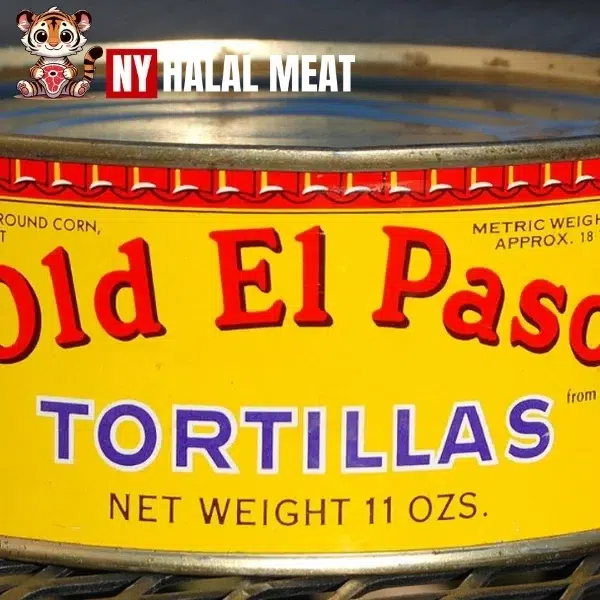Is Old El Paso Halal? Understanding Ingredients, Certification, and Consumer Concerns
For Muslim consumers who follow halal dietary laws, determining whether popular food brands like Old El Paso meet halal standards is a crucial concern. With their well-known Tex-Mex product range—taco shells, spice mixes, refried beans, and more—Old El Paso is a pantry staple for many. But when it comes to meeting halal criteria, the answer isn’t always simple or clearly labeled. Visit nyhalalmeat.com to explore halal alternatives.
Understanding the Essentials of Halal Certification in Packaged Foods
Halal, meaning “permissible” in Arabic, refers to anything allowed under Islamic dietary laws. For food products, this means they must not include pork, alcohol, or improperly slaughtered meat. Beyond the ingredients themselves, the entire manufacturing process must be free from cross-contamination with non-halal items. Because of these strict standards, halal certification from an authorized body gives consumers peace of mind about what they’re eating.
Ownership and Ingredient Transparency: The Case of General Mills
Old El Paso is owned by General Mills, a global food company that also produces many household brands. While General Mills generally lists ingredients on packaging and online, they do not provide halal certification for Old El Paso products in major markets like the United States or the United Kingdom. For consumers who rely on official certifications, this lack of verification can raise concerns—even if the listed ingredients appear acceptable.
Unpacking Ingredient Risks in Tex-Mex Packaged Foods
Many of Old El Paso’s products contain additives that may not always be halal-friendly. Ingredients such as mono- and diglycerides, emulsifiers, enzymes, and gelatin can come from either plant or animal sources. Without clear labeling or manufacturer confirmation, there’s no guarantee these additives are sourced from halal-approved materials. This is particularly relevant in products like tortillas and creamy sauces.
Decoding the Term ‘Natural Flavors’ in Labeling
“Natural flavors” may sound safe, but in reality, they can be derived from a broad spectrum of plant-based or animal-based ingredients. Without disclosure from the manufacturer, it’s impossible for consumers to confirm whether these flavors align with halal dietary requirements. This lack of transparency is why many halal-conscious buyers avoid products with vague terminology.
Are Any Old El Paso Products Safe by Ingredient?
Some items in the Old El Paso range are simpler in composition and may be halal by ingredient. For example, plain canned beans, unflavored taco shells, or basic spice mixes may not contain haram ingredients. However, without an official halal logo, these products still carry a risk of cross-contamination or hidden animal-based components.
Can Kosher Labels Help Halal Consumers Make Safer Choices?
Some halal consumers use kosher certification as a point of reference, as kosher laws also exclude pork and mandate specific slaughter methods. While this can be a helpful indicator in some cases, kosher guidelines differ from halal in key ways—particularly concerning alcohol use and exact slaughter rituals. Therefore, kosher-certified does not automatically mean halal-compliant.
How to Make Informed Decisions as a Halal-Conscious Consumer
In the absence of certified halal labeling, it becomes essential for consumers to take responsibility for their choices. This involves carefully reading product labels, understanding potentially problematic ingredients, and reaching out to manufacturers for clarity. General Mills offers customer support channels where consumers can inquire about specific products and their sourcing. For more halal resources, check nyhalalmeat.com.
The Halal Market Is Growing—Will Brands Like Old El Paso Respond?
As the global demand for halal-certified products increases, more brands are being encouraged to adapt and offer verified options. Consumer advocacy plays a major role here. When brands hear from enough customers requesting halal certification, they are more likely to explore these changes to better serve the market.
Creating Tex-Mex Favorites at Home with Full Halal Assurance
A practical and rewarding alternative is to make Tex-Mex dishes at home using halal-certified ingredients. With access to halal meats, dairy, and spices, consumers can recreate favorites like tacos, burritos, and enchiladas while staying within dietary guidelines. This approach also ensures control over what goes into each meal and allows customization to personal preferences. You can find high-quality halal ingredients at nyhalalmeat.com.
FAQs About Old El Paso and Halal Compliance

Q1: Are Old El Paso products halal-certified in the US or UK?
No, they are not currently halal-certified in these markets.
Q2: Can some Old El Paso items still be considered halal by ingredients?
Yes, simpler items like plain canned beans or certain spice packets may not contain haram ingredients but are still not officially certified.
Q3: Does a kosher label mean the product is automatically halal?
No, while helpful in some cases, kosher and halal guidelines differ, especially in slaughter practices and alcohol permissibility.
Q4: Is there pork in Old El Paso products?
Most products do not list pork directly, but ingredients like gelatin or enzymes could be derived from pork unless stated otherwise.
Q5: What should consumers do if uncertain about an ingredient’s source?
They should contact the company directly and request clarification regarding the ingredient’s origin and processing method.


